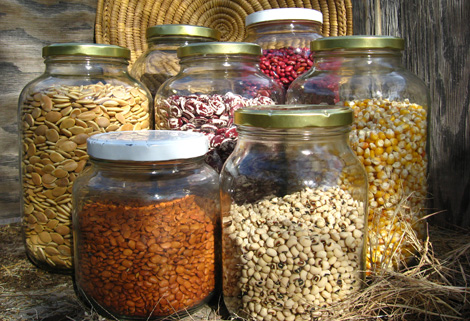To carry on ancestral ties, crop seeds are distributed to Native American groups who want to plant them free of charge as a way of preserving ancient agricultural practices.
It is vital to many cultures to ensure ancient ways are not cast aside. “Restoring seeds is important in [the Native American] culture. The songs they sing, their ceremonies and just their overall life revolves around the native seeds,” says Alex Sando, Native American coordinator. “Without seeds, I think the culture would be lost or just half there."

Sando, who was born and raised in New Mexico on traditional farming, spends his days visiting with native farmers and gardeners, supporting Native Americans as partners and workers in the community and, of course, distributing seeds.
As far as production goes, Native Seeds owns a 60-acre conservation farm in Patagonia. “Every year the conservation staff goes through to see what types of seeds to bring out. This year they’re doing a lot of chilies and squash,” says Diana Peel, community relations coordinator.
Above all else, the conservation of the seeds is the organization’s main mission. “We are a seed bank protecting the use of these seeds,” Peel says.
And protect they do.
The 1,850 varieties of seeds are preserved and stored inside a local Tucson seed bank, which is essentially a climate-controlled base vault inside an adobe-style building.Since its 1983 beginnings, Native Seeds has sparked the interest of consumers all over the globe.
The Native Seeds Web site and retail store, 526 N. 4th Ave., is home to 350 varieties of seeds as well as gift baskets, crafts and food products, which are used by chefs all over Tucson.
“A lot of chefs are really interested in that local connection,” Nelson says. “[It makes for] a more unique kind of menu.”Changing our future with seeds and soil; a unique cause indeed.